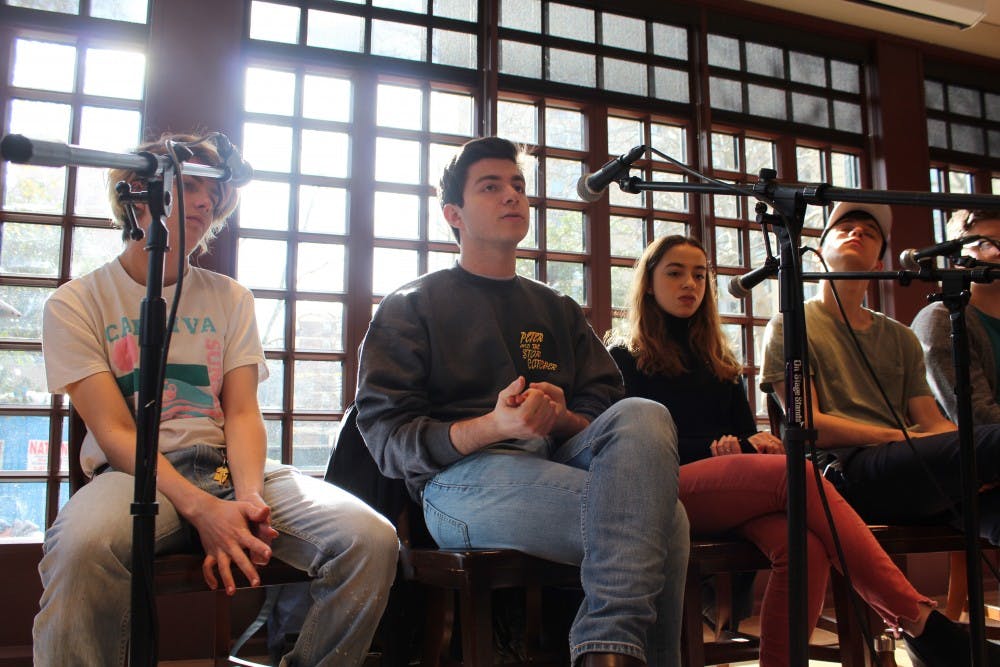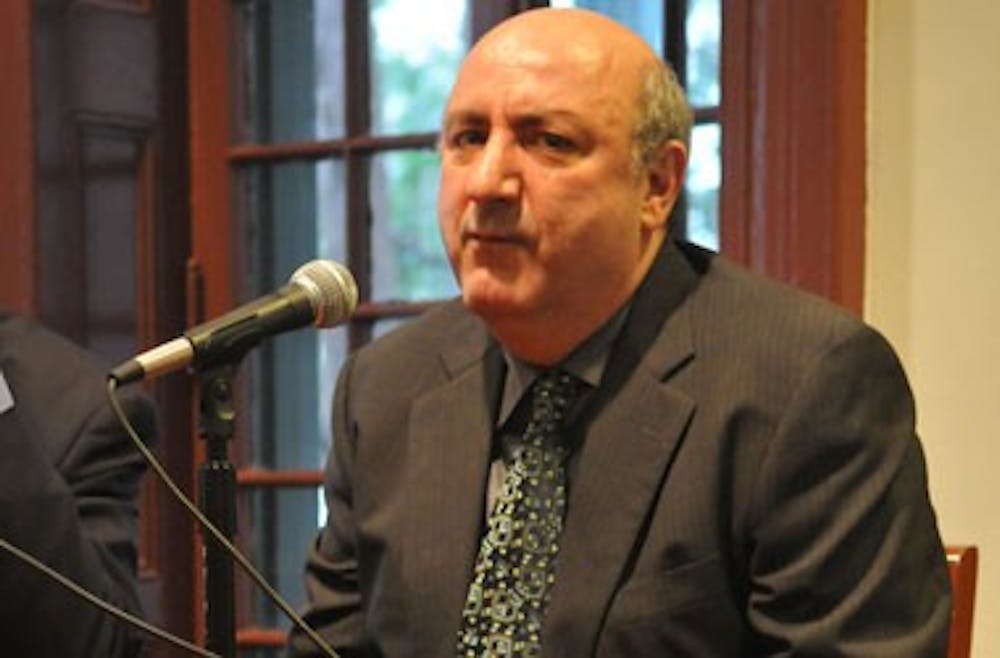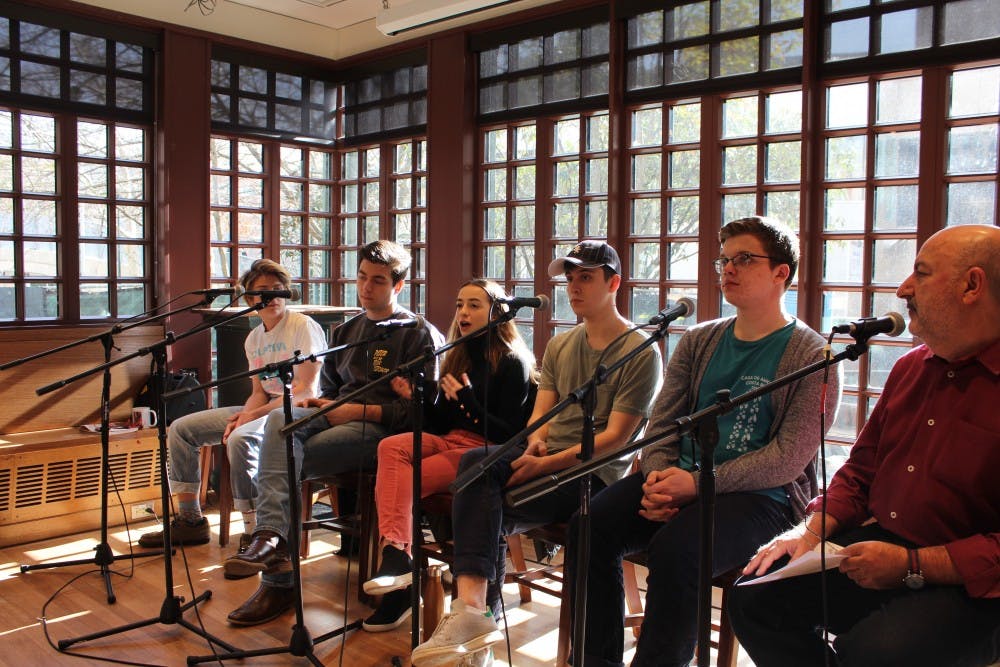
Students discuss their experience with internships they have received through RealArts@Penn. (Photo from Kelly Writers House)
While banking and consulting jobs tend to dominate the conversation surrounding internships, RealArts@Penn, a program that helps students find summer internships in creative fields, offers a different path.
This year, RealArts@Penn is offering 24 internships in industries such as publishing, television, and museum administration. Students can apply for jobs with organizations such as the Library of Congress, Philadelphia Magazine, Pitchfork Magazine, and Brooklyn Films. All interns receive a $4,000 stipend.
English professor Anthony DeCurtis, faculty director of RealArts@Penn, said the program was created in 2007 out of the Center for Programs in Contemporary Writing because students interested in writing were struggling to find summer internships.

“It was kind of a different experience at Penn than being at Wharton or being at some preprofessional program where the internship situation is a much more formalized structure,” DeCurtis said. “We thought if there was a way for us to step in and provide more structure to the process, and also provide them with some financial support, that would be key.”
English professor Al Filreis, faculty director of the Kelly Writers House and director of CPCW, said offering stipends through RealArts@Penn has allowed students to lean towards creative internships.
“The revolutionary concept for RealArts is that students in the arts and humanities don’t have to turn down internships in the field of their interest,” Filreis said. “They don’t have to take business internships or internships at banks, even though this may be their second choice, simply because they pay.”
Mingo Reynolds, director of RealArts@Penn and CPCW director of administration, said legal changes in the internship field mean many interns are paid by companies. But the pay rate is still often not enough to cover the excessive cost of housing.
For the third year in a row, RealArts@Penn is also offering the RealArts@Penn Internship Prize, which grants supplemental funding to 10 to 15 students who have found creative internships on their own. Applications will open in March on a rolling basis.
While Reynolds said some RealArts@Penn interns receive return offers, she added the internships can be valuable even if they do not lead to jobs.

A panel with previous students who were accepted to internships through RealArts@Penn. (Photo from Kelly Writers House)
“Even if [students] don’t get hired, they feel like they have someone in the business that they can bounce ideas off of or get some mentoring around when they are looking for a job,” Reynolds said. “They can be another level of career counseling outside of the Penn walls."
Reynolds said the program has seen about 500 applications consistently for the past three or four years, adding that applicants come from all over Penn.
“[There are] lots of folks from Wharton and all over the School of Arts and Sciences," she said. “A lot of Wharton students want to, at least one summer, experience something that isn’t big-time finance.”
Because of RealArts@Penn's diverse applicant pool, neither Reynolds nor Filreis are worried that declining numbers of humanities majors will cause decreased interest in the program.
“I feel like even if people aren’t majoring as much in the humanities, there is still a very intense and passionate interest in the student body for this,” Reynolds said. “There is a tendency for students to feel like they need to study something that is a little more marketable or easily translated into a job after graduation, but the desire to write and a love for creative humanities is still very alive in them."
Filreis said he hopes RealArts@Penn will help students feel more comfortable pursuing creative internships.
“Some students feel parental pressure to take paid, official, fancy summer internships and a lot of students feel bad about wanting to do something unusual,” he said. “The RealArts program enables us to give an official designation – it gives credence so that students can say proudly among families and friends, ‘yeah, I have been awarded this special thing, this RealArts internship.'"
The Daily Pennsylvanian is an independent, student-run newspaper. Please consider making a donation to support the coverage that shapes the University. Your generosity ensures a future of strong journalism at Penn.
Donate






